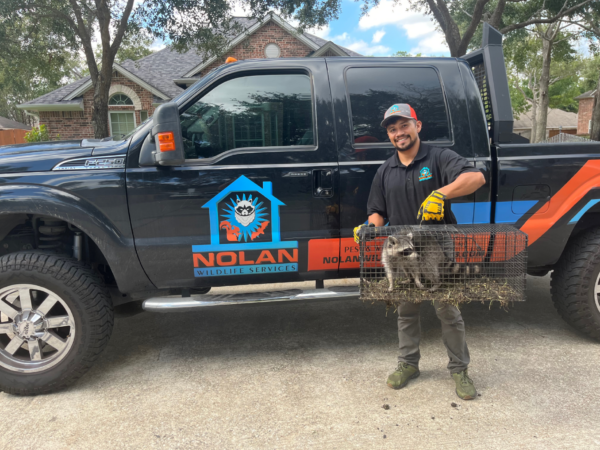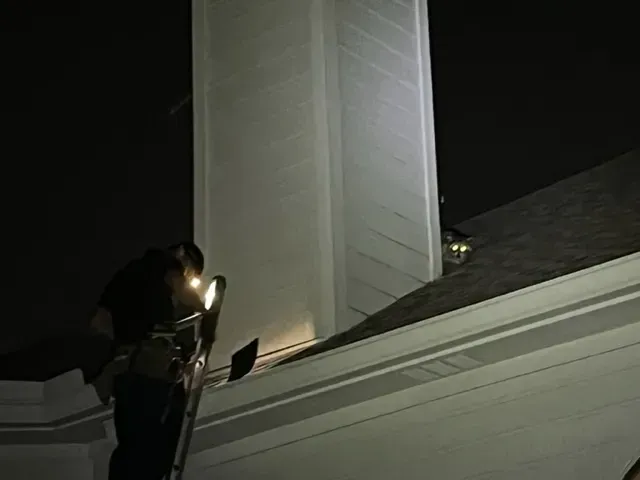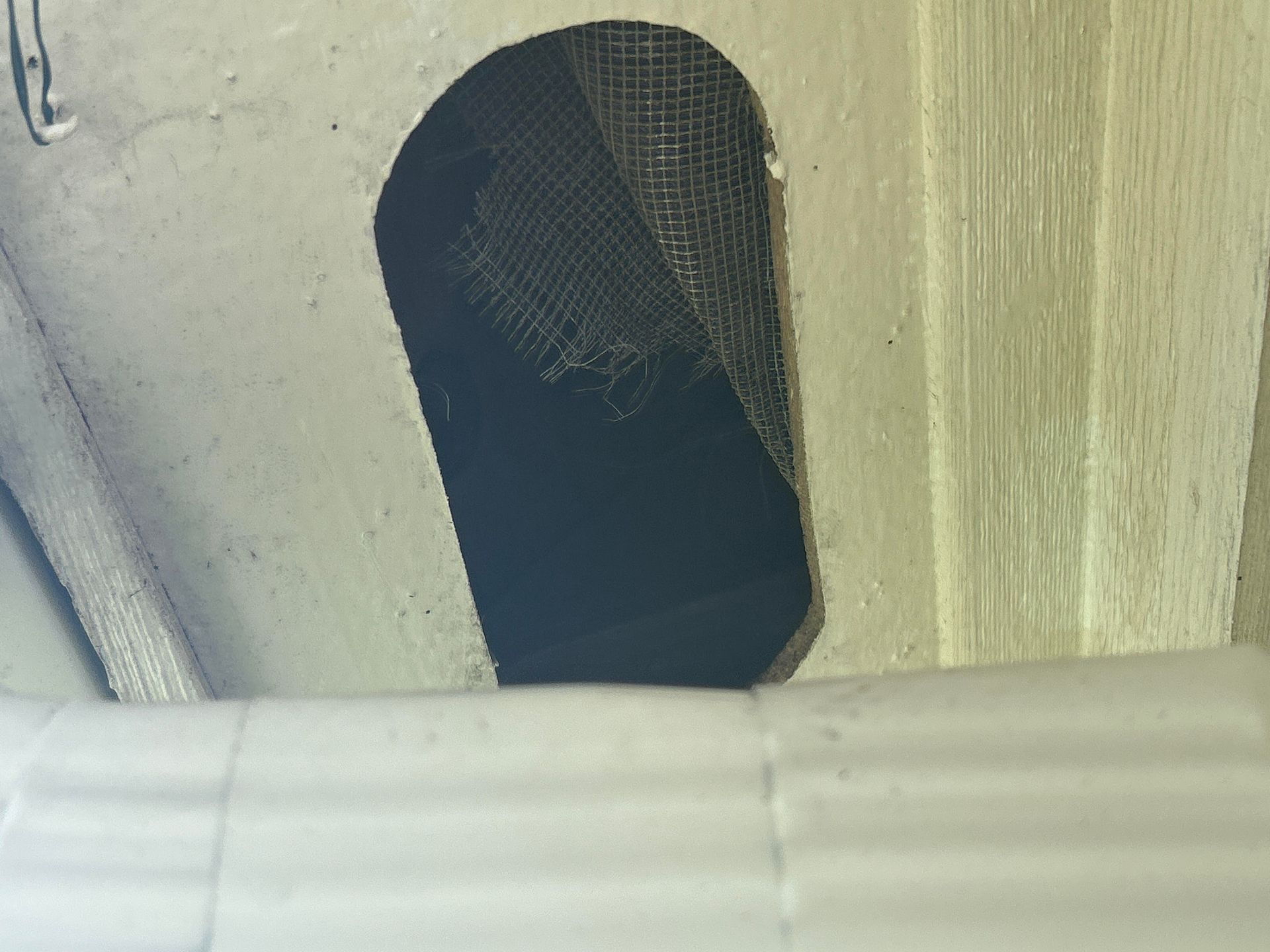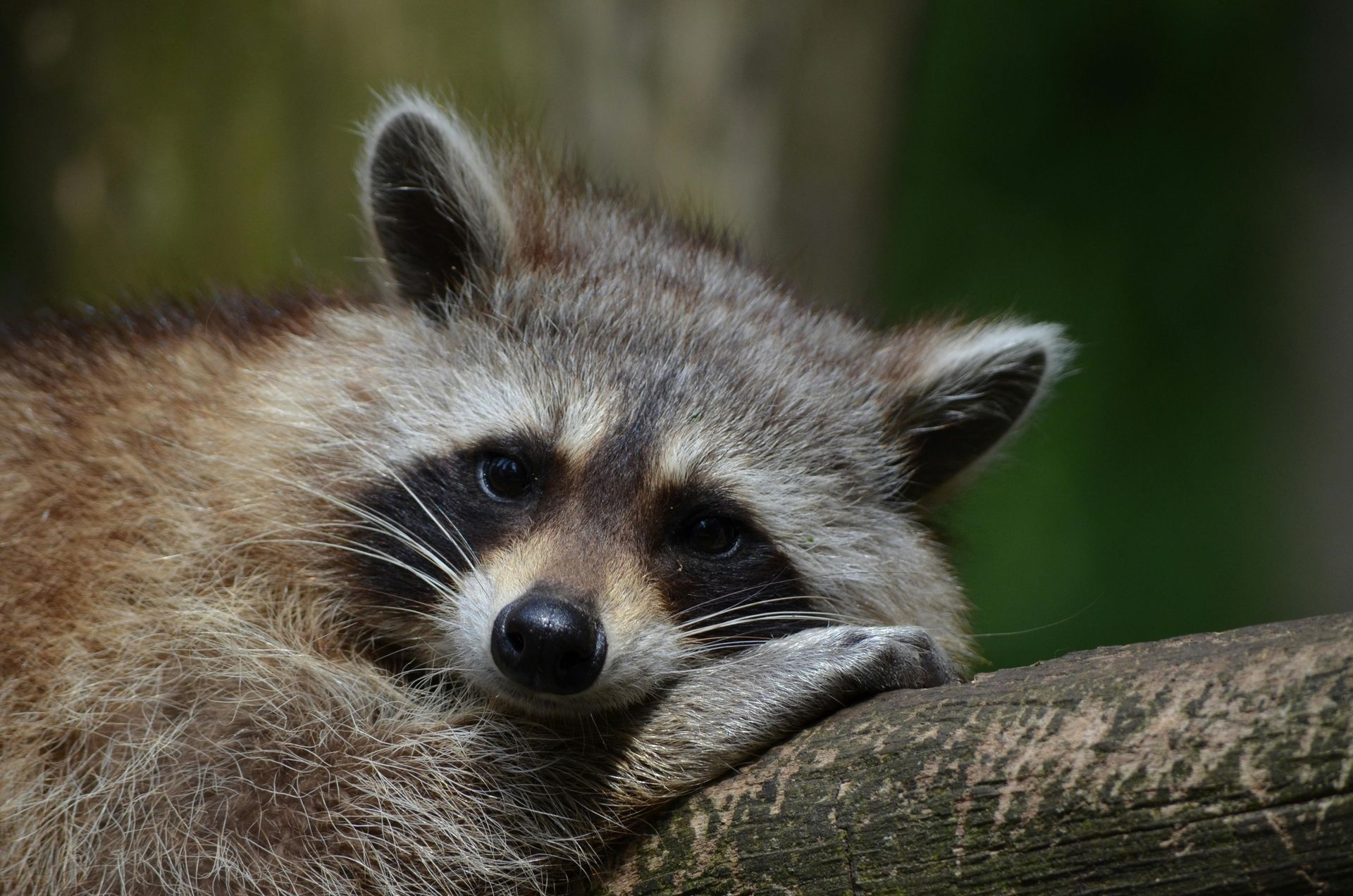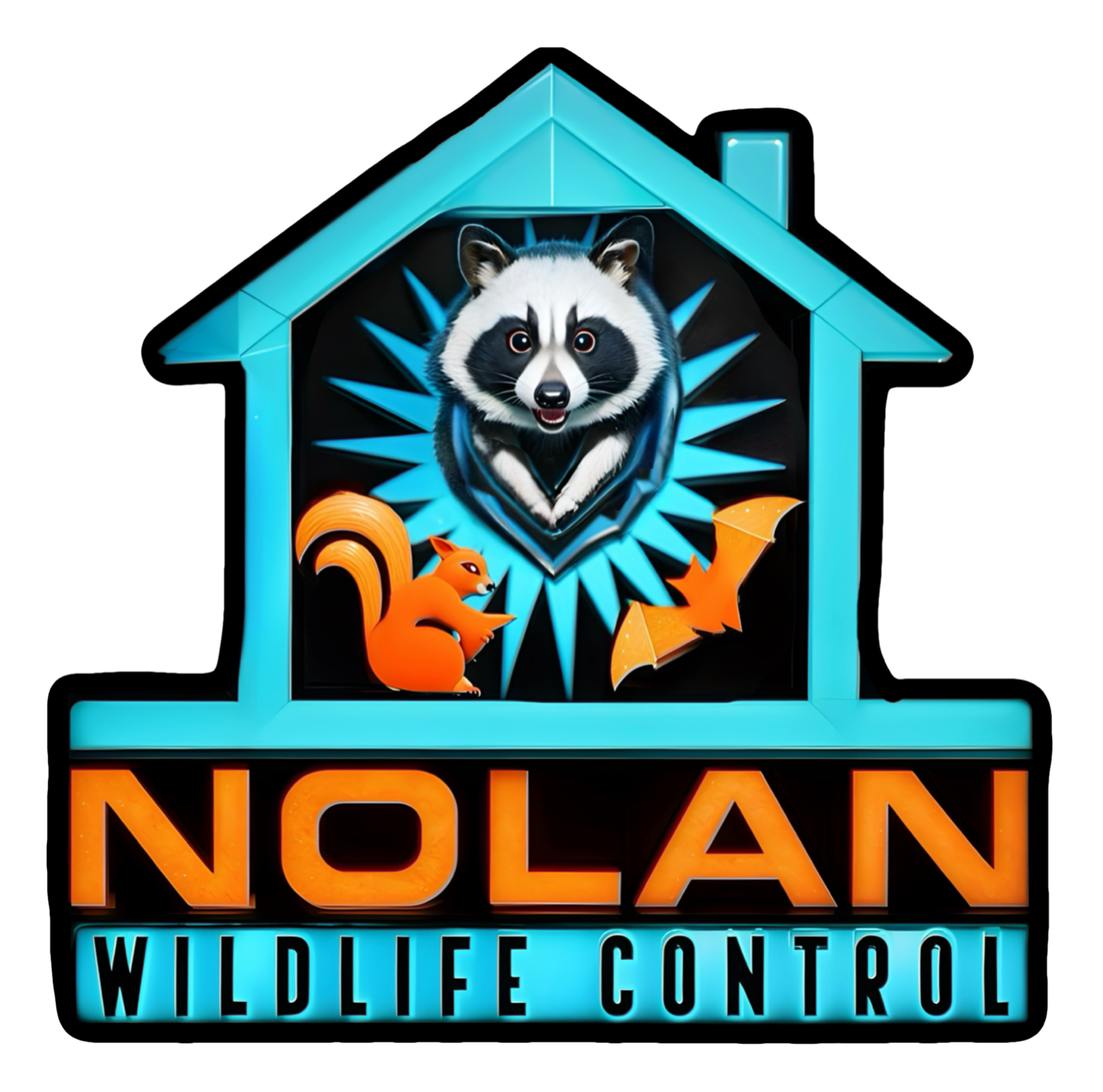Expert Raccoon Removal Services
At Nolan Wildlife Control LLC, we specialize in humane raccoon removal and prevention strategies tailored to protect your home and property in Houston, TX!
Humane Raccoon Control Services
Safe and Effective Raccoon Removal
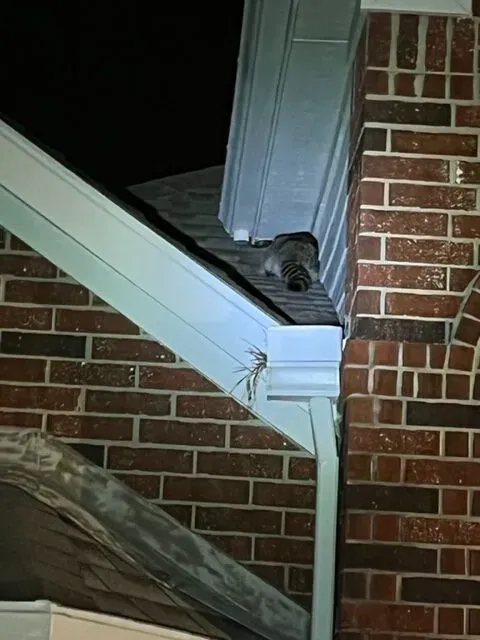
Raccoon removal should always be handled by the professionals at Nolan Wildlife. Raccoons are strong, resourceful, and excellent climbers. They invade homes looking for a safe place to den that’s close to food and water. In the wild this is usually in a rock crevice, or a hollow tree, but your attic, soffit, and sub-flooring make ideal locations for raccoons.
Raccoons are noisy and destructive. Do not wait for them to leave on their own. . They have become a real nuisance to homeowners as they have learned to adapt to living around humans. Raccoons are great climbers; they gain access into attics and use them for dens to raise their young. Similarly, they are responsible for costly damage to many homes.
Nolan Wildlife Services specializes in raccoon removal in Houston and surrounding areas. In order to remove and control a raccoon or family of raccoons on your property, our wildlife specialist will perform a thorough inspection of your property. After the inspection, they will build a custom solution to trap, remove, and seal all entry points.
Fascinating Raccoon Facts
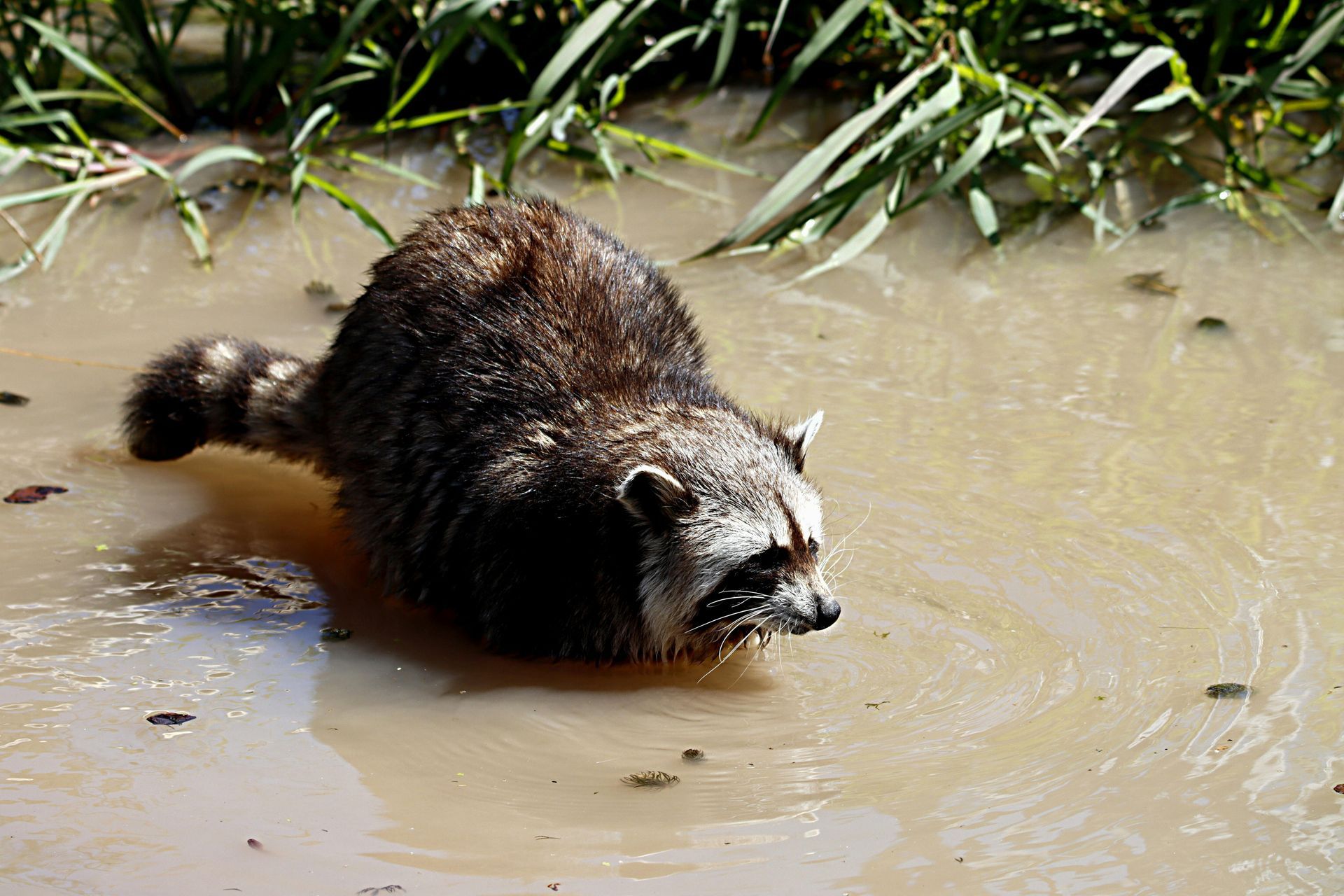
Raccoons are more than just cute, masked bandits. These intelligent creatures are known for their dexterity and problem-solving skills. With their highly adaptable nature, raccoons thrive in urban environments, often foraging for food in trash cans and gardens. Did you know that raccoons have a unique ability to remember solutions to tasks for at least three years? Their front paws are incredibly nimble, allowing them to open jars and doors with ease. Understanding these fascinating facts can help you appreciate their role in the ecosystem and the importance of humane wildlife control.
What do raccoons eat?
Raccoons are very omnivorous and commonly eat an even mix of invertebrates, vertebrates, and plants. This consists of worms, grubs, insects, fruits, nuts, amphibians, small mammals, birds, and bird eggs. In urban areas, their diet will also commonly consist of available cat food or dog food and any accessible garbage. Raccoons are mostly nocturnal and feed at night but will sometimes move during the daytime to take advantage of available food sources.
Where do raccoons live?
Raccoons are highly adaptable and can survive in many different types of environments including those in close proximity to humans.
Are raccoons dangerous?
Yes, raccoons can be dangerous, both to humans and pets, in certain situations.
Here's why:
1. Aggression and Bites:
While generally shy and preferring to avoid humans, raccoons can become aggressive if they feel threatened, cornered, or are protecting their young.
They may bluff by hissing, growling, or even charging, but if truly cornered, they may bite and scratch, causing injury.
Raccoon bites can be dangerous, requiring medical attention and potentially rabies treatment, as raccoons are rabies vector species.
2. Disease Transmission:
Raccoons can carry various diseases transmissible to humans and pets, including rabies, raccoon roundworm, leptospirosis, and salmonella.
Rabies is a serious concern, and exposure requires immediate medical attention and post-exposure prophylaxis.
Roundworm, transmitted through raccoon feces, can cause severe symptoms in humans and even death in dogs.
Other diseases like leptospirosis and salmonella can also pose health risks.
3. Property Damage:
Raccoons are known for causing property damage by raiding trash cans, destroying gardens, and creating dens in attics, chimneys, and crawl spaces.
They can tear up insulation, chew wiring, and cause costly repairs to homes and gardens.
4. Risks to Pets:
Conflicts between raccoons and pets, especially dogs and cats, can lead to injury and disease transmission.
Raccoons may attack pets if they feel threatened or are protecting their young, and have been known to kill small dogs and cats.
They can also spread diseases like canine distemper and parvoviral enteritis to unvaccinated pets.
How can I prevent raccoons from entering my property?
To prevent Raccoons from entering your home see our widlife prevention page and book an inspection for your home Sealing entry points will keep raccoons from entering your home and making a den in your attic. Raccoons, dispite their size, can fit through a 4" gap. Roughly the size of a softball.
Aside from a home exclusion, securing trash cans, and minimizing food access will keep them from your property.
What should I do if I see a raccoon?
What to do if you encounter a raccoon:
Keep your distance and don't approach it.
Don't feed raccoons. This habituates them to humans and can increase aggression.
Secure your trash cans. This eliminates a major food source that attracts raccoons.
Bring in pet food and water bowls at night.
If a raccoon approaches you, make yourself look big and make noise to scare it away.
If a raccoon is aggressive or you suspect it might be sick or have rabies call animal control.
Raccoon Behavior
Raccoons are nocturnal animals, meaning they are most active at night. They are social creatures that often live in groups, known as a gaze. Their vocalizations range from purring to growling, showcasing their diverse communication methods. Understanding their behavior can help in managing interactions and preventing conflicts with these wildlife neighbors.
